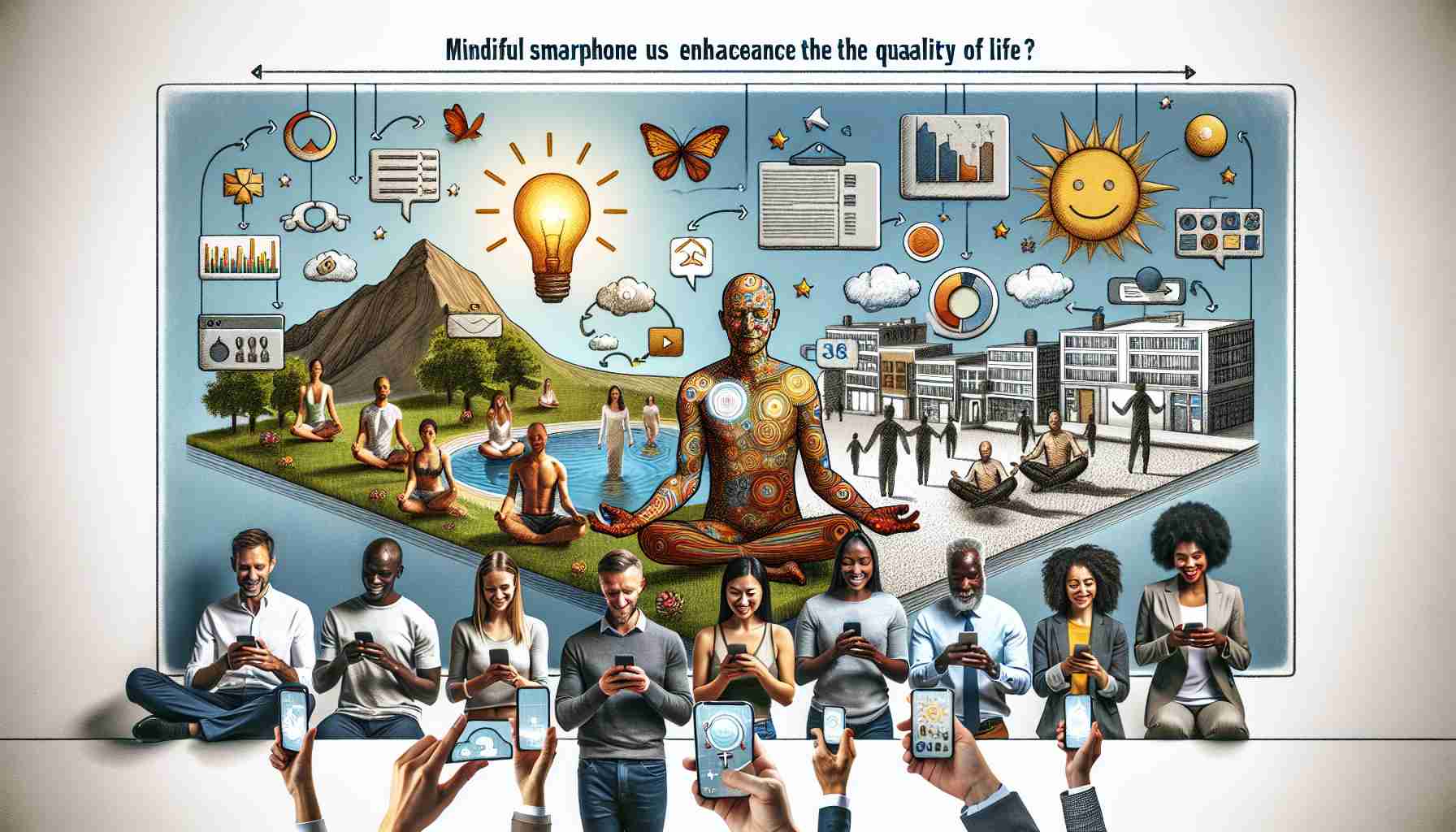In today’s digital age, smartphones have become integral to our daily lives. An expert in digital well-being emphasizes the importance of mindful smartphone use as a means to improve overall quality of life. Rather than allowing devices to dominate our time and attention, conscious engagement with technology can foster better mental health and a more fulfilling lifestyle.
The expert suggests that setting boundaries on smartphone usage can significantly contribute to personal well-being. This includes allocating specific times for checking notifications or social media, which helps to prevent constant distractions and anxiety associated with digital demands. Adopting a more purposeful approach encourages individuals to connect with their surroundings and engage more meaningfully in face-to-face interactions.
Additionally, the expert highlights that using smartphones mindfully can enhance productivity and satisfaction. By utilizing applications that promote focus and limit unnecessary screen time, users can reclaim precious hours for activities that enrich their lives, such as spending quality time with loved ones, pursuing hobbies, or practicing mindfulness.
In summary, embracing a balanced relationship with smartphones can lead to improved mental health and a more enriched quality of life. By being intentional in how we interact with our devices, we can harness their benefits while minimizing the potential negative impacts on our well-being.
Enhancing Life Quality Through Mindful Smartphone Use
In a world where smartphones are an extension of ourselves, embracing mindful smartphone use can significantly enhance our quality of life. Here are some tips and interesting facts that can help you cultivate a more balanced interaction with your device, whether in life, work, or school.
1. Set Specific Times for Phone Use
One of the most effective strategies for mindful smartphone use is to designate specific times for checking your phone. Instead of leaving notifications on throughout the day, try checking your phone at set intervals. This simple adjustment can help reduce anxiety and keep your focus on the present moment. Research shows that reducing the frequency of phone checks can improve concentration and productivity, especially in academic or work settings.
2. Use Technology to Limit Technology
There are several applications designed to help users manage their screen time. Apps like Forest or Moment encourage you to stay off your phone by gamifying the experience of focusing on real-world tasks. By using these tools, you can reclaim time for more rewarding activities, whether that’s reading a book, exercising, or spending quality time with family.
3. Prioritize Face-to-Face Interactions
In our digital world, it can be all too easy to prioritize texting or social media over face-to-face interaction. Make a conscious effort to engage in conversations with people around you. Experts suggest that human connections boost happiness levels and improve mental health. You could even set a rule to keep your phone away during meals or social gatherings to encourage meaningful conversations.
4. Be Mindful of Content Consumption
Not all screen time is created equal. While finding inspiration online can be beneficial, mindless scrolling can detract from your overall well-being. Try to curate the content you consume by following accounts and channels that inspire and educate you rather than those that lead to negativity or comparison. Engaging with positive content can boost your mood and encourage a healthier mindset.
5. Embrace Tech-Free Time
Consider establishing tech-free zones or times in your life. For instance, you might have a rule against phones before bedtime, which can enhance sleep quality. Treat these tech-free periods as vital time for relaxation and mindfulness. Experts advocate that disconnecting from screens allows your mind to rejuvenate, leading to increased creativity and better cognitive function.
Interesting Facts:
– Studies reveal that excessive smartphone use can lead to symptoms of anxiety and depression. Mindful usage can mitigate these effects.
– A 2019 study found that students who limited their phone use reported better academic performance and increased satisfaction in educational settings.
– Engaging in mindfulness techniques, such as meditation or yoga, while restricting smartphone use has proven to enhance mental clarity and emotional resilience.
By following these tips and understanding the impact of mindful smartphone use, you can improve your daily life significantly. Remember, technology is a tool meant to enrich our experiences, not dominate them. For more resources, visit Digital Wellbeing. Embrace mindfulness, and watch how it positively transforms your relationship with your smartphone and overall quality of life.























